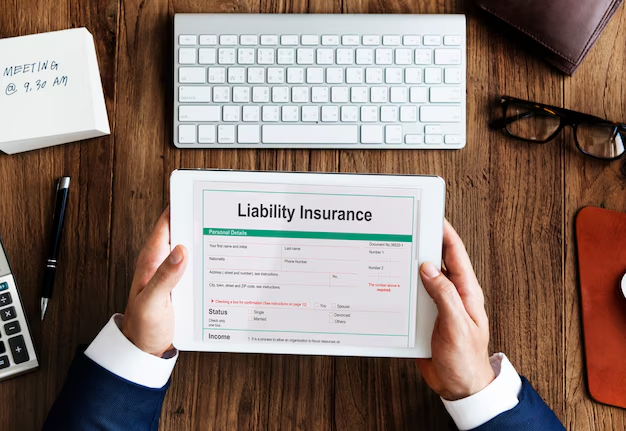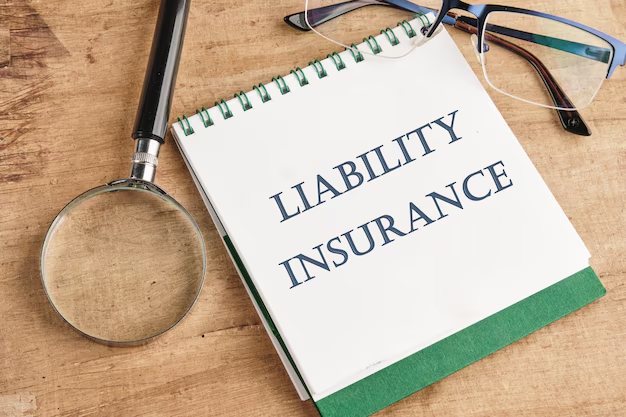Liability Insurance Liability insurance is a crucial aspect of financial protection that many people overlook. Whether you’re an individual, a business owner, or a professional, understanding liability insurance is essential to safeguard your assets and mitigate potential risks. This article will explain what liability insurance is, why it matters, and how it can protect you in various situations.
What is Liability Insurance?
Liability insurance is a type of insurance that provides coverage for claims made against you or your business for negligence or unintentional harm to others. It typically covers legal costs, settlements, and judgments resulting from such claims. Liability insurance comes in several forms, including:
- Personal Liability Insurance: Covers individuals against claims for bodily injury or property damage they cause to others.
- General Liability Insurance: Commonly used by businesses to protect against third-party claims for bodily injury, property damage, and personal injury.
- Professional Liability Insurance: Also known as errors and omissions (E&O) insurance, it covers professionals against claims of negligence, errors, or omissions in their services.
- Product Liability Insurance: Protects businesses from claims related to injuries or damages caused by their products.
Why Liability Insurance Matters

1. Protection Against Lawsuits
One of the primary reasons to have liability insurance is to protect yourself from the financial burden of lawsuits. Legal fees can be exorbitant, and a single lawsuit can jeopardize your financial stability. Liability insurance covers legal expenses, ensuring you are not left to pay out-of-pocket for these costs.
2. Asset Protection
Liability claims can lead to significant financial losses, especially if they result in a judgment against you. Liability insurance helps protect your assets, including your home, savings, and investments, by covering the costs associated with claims made against you.
3. Peace of Mind
Knowing that you have liability insurance provides peace of mind. You can go about your daily activities or run your business without the constant worry of potential lawsuits. This sense of security allows you to focus on what matters most, whether that’s enjoying time with your family or growing your business.
4. Requirement for Businesses
For many businesses, liability insurance is not just a recommendation; it’s a requirement. Landlords, clients, and partners may demand proof of insurance before engaging in business relationships. Having the appropriate liability coverage can enhance your credibility and help you secure contracts.
5. Compliance with Regulations
Certain professions and industries are mandated by law to carry specific types of liability insurance. For instance, healthcare providers, lawyers, and contractors often need professional liability insurance to comply with industry regulations. Failing to have the necessary coverage can result in penalties or loss of licensing.
Types of Liability Insurance

1. Personal Liability Insurance
This coverage is often included in homeowners or renters insurance policies. It protects you from claims made by others for bodily injury or property damage caused by you or your family members.
2. General Liability Insurance
Essential for businesses, this insurance covers third-party claims for bodily injury, property damage, and advertising injuries. It can help protect your business from various risks, such as slip-and-fall accidents on your premises.
3. Professional Liability Insurance
Common among professionals like doctors, lawyers, and consultants, this coverage protects against claims of negligence or inadequate performance of professional duties. It is crucial for individuals who provide specialized services or advice.
4. Product Liability Insurance
If your business manufactures or sells products, this insurance protects you against claims related to injuries or damages caused by those products. It covers legal costs associated with defending against such claims.
How to Choose the Right Liability Insurance

1. Assess Your Risks
Evaluate your personal and professional risks to determine the type and amount of liability insurance you need. Consider factors such as your occupation, lifestyle, and assets.
2. Consult an Insurance Professional
Working with an insurance agent or broker can help you navigate the complexities of liability insurance. They can provide valuable insights into the types of coverage available and help you select the best policy for your needs.
3. Review Policy Details
Carefully review the terms, conditions, and exclusions of any liability insurance policy before purchasing. Ensure you understand what is covered and what isn’t, and ask questions if anything is unclear.
4. Consider Your Assets
The more assets you have, the higher your potential liability. Make sure your liability coverage limits are sufficient to protect your assets in case of a claim or lawsuit.
5. Shop Around
Don’t settle for the first policy you come across. Compare quotes from multiple insurers to find the best coverage at a competitive price. Look for companies with strong reputations for customer service and claims handling.
Also Read : What Travel Insurance Options Should I Consider For Adventure Travel?
Conclusion
Liability insurance is an essential component of financial protection for individuals and businesses alike. By understanding its importance, types, and how to choose the right policy, you can safeguard yourself against unexpected claims and lawsuits. Whether you’re a homeowner, a business owner, or a professional, investing in liability insurance can provide peace of mind and protect your assets from unforeseen risks.
FAQs
Q. What does liability insurance cover?
Liability insurance covers claims for bodily injury, property damage, and personal injury caused by you or your business. It may also cover legal expenses related to defending against these claims.
Q. Is liability insurance mandatory?
While not always legally required, liability insurance is often necessary for businesses to meet contractual obligations and protect their assets. Certain professions may also be mandated to carry specific types of liability insurance.
Q. How much liability insurance do I need?
The amount of liability insurance you need depends on your individual circumstances, including your assets, potential risks, and whether you own a business. Assess your situation and consult an insurance professional to determine the appropriate coverage limits.
Q. Can I get liability insurance for my home?
Yes, personal liability insurance is typically included in homeowners and renters insurance policies. It protects you from claims made by others for injuries or damages that occur on your property.
Q. What should I do if I receive a liability claim?
If you receive a liability claim, contact your insurance provider immediately. They will guide you through the claims process and help you understand your coverage and next steps.

